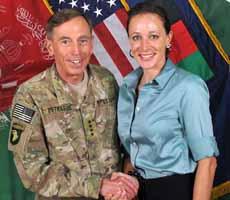The web of deceit begins to fray
By Wes Pruden
PrudenPolitics.com
What did the president know, and when did he know
it? Of what steel are the Republicans in Congress
made? We’re about to find out.
Big scandals from little leaks grow. Watergate was
at first only “a third-rate burglary.” Bubba thought
he was only trying to cover up the details of a
failed real-estate scheme down on the White River.
Humiliation, resignation and even an impeachment
followed.
History warns presidents that second terms are never
Sunday picnics, and the unfolding – exploding is
more accurate – of the story of what really happened
on a violent night in Benghazi and the days that
followed is Barack Obama’s introduction to his next
four years. We probably ain’t seen nothin’ yet.
Nearly everyone suspects that Mr. Obama, trying to
avoid questions about the mishandling of Benghazi,
was running out the clock, hoping to stumble past
the election before being overtaken by facts and
hard reality. Some of the congressional Republicans
are talking bravely now about getting to the bottom
of the sordid story, and the Democrats give every
sign of attempting to squelch and evade: let’s move
on, nothing to see here.
But maybe there is something to see. The press had
no interest in the Benghazi story when it could have
been the campaign show-stopper, but now some of
stars of print and screen are slowly coming out of
their self-induced coma. Sex makes any story
irresistible, even to pompous hacks and blowhards.
The resignation of David Petraeus was treated at
first as driven by illicit and undisciplined passion
to astonishing indiscretion, a good man seduced as
men have been seduced since Eve tempted Adam with a
Golden Delicious. Why else would a four-star
general, the chief of the nation’s spies, correspond
with his mistress by e-mail? As juicy as all that
is, the story is leading inevitably and inexorably
back to Benghazi.
Maybe the general and his paramour shared more than
titillating pillow talk. The Wall Street Journal
reports that FBI investigators discovered classified
documents on the paramour’s computer. Where did
Paula Broadwell get them? And now the account
surfaces of a speech Mrs. Broadwell made at the
University of Denver on Oct. 26 in which she
revealed the news that the CIA had been holding two
terrorist prisoners at the consulate and the attack
was an attempt by terrorists to rescue them. Where
did she get this information? Was she making stuff
up to sell her book or did she inadvertently spill a
state secret coaxed from a lover?
The CIA says that story is not true, and maybe it
isn't, but you would expect the CIA to deny it even
if it were.
We’re asked to believe eleven impossible things
before breakfast, and a half-dozen more after lunch,
and in the absence of a coherent explanation we get
speculation and surmise from people who may or may
not know what they’re talking about. The true story,
leaking slowly in dribs and drabs, goes beyond a
catfight over the affections of a general, or a turf
war between the FBI and the CIA.
We’re asked to believe that the FBI investigation
into the general’s affair, with its enormous
national-security implications, was conducted over a
period of weeks and the president was never told
anything about it until Mr. Petraeus submitted his
resignation. A half-dozen government agencies, in
this fanciful telling of the story, treated the
president as if he were a virgin in a bordello, all
to preserve his “innocence” in the final weeks of a
bitter election campaign. If the president didn’t
know what was going on upstairs, this is
incompetence bordering on criminal malfeasance.
With no facts, we have only the tangled web of lies
in the changing official stories. Was the general
intimidated – if not blackmailed – into joining the
president, Secretary of State Hillary Clinton and
United Nations Ambassador Susan Rice in their
ridiculous story, told over and over, that the
Benghazi attack was set off by demonstrations
protesting that obscure video? Mr. Petraeus
supported the president’s story about the video in
testimony to Congress shortly after the
assassination of Chris Stevens. He surely knew
better.

ISAF PUBLIC AFFAIRS
By
all accounts David Petraeus was and is a man of
honor and integrity, now disgraced and broken by a
familiar indiscretion born of human frailty. Looking
to Congress for brave men and women who can unravel
this web of deceit, a web perhaps woven of high
crimes and misdemeanors, is usually a fool’s errand.
But Congress is all we've got.
Wesley Pruden is editor emeritus of The Washington
Times.

